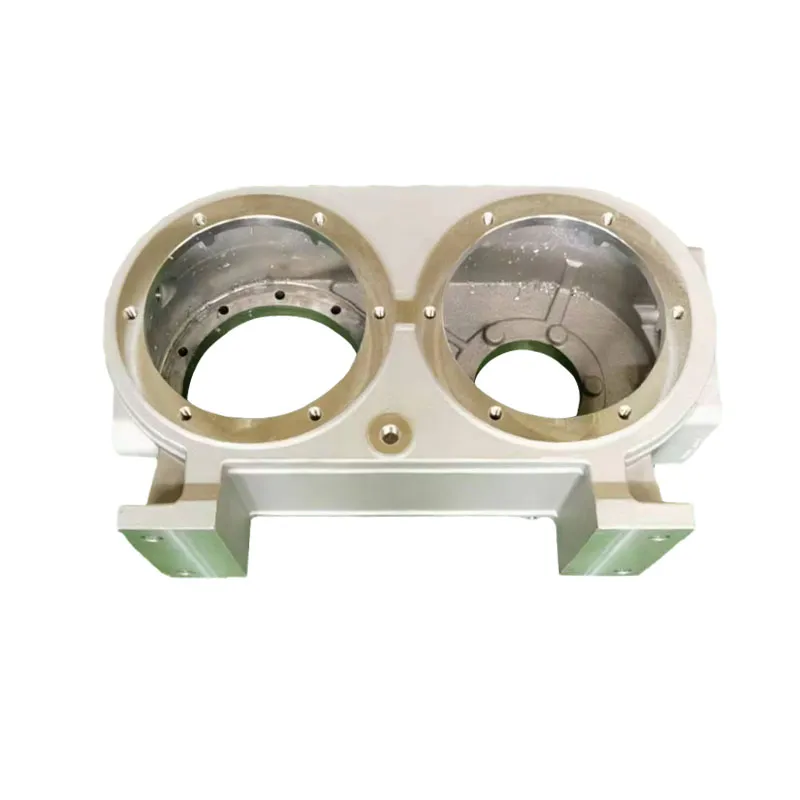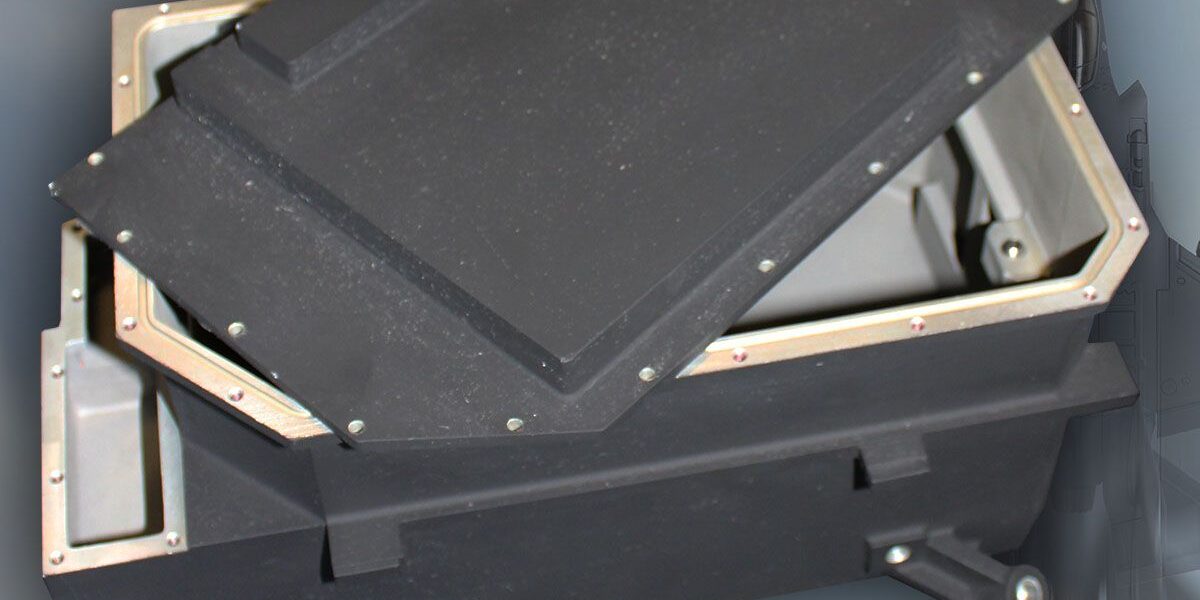Discovering the Innovative Procedures Behind Modern Aluminum Foundry Workflow
Modern aluminum factory operations are undergoing substantial improvement. Automation and AI are reshaping manufacturing techniques, boosting both efficiency and accuracy. The assimilation of 3D printing is simplifying mold and mildew production, while sustainability practices are ending up being much more vital. Each of these improvements plays a crucial role in redefining the industry. However, the effects of these adjustments prolong past plain production performance. What opportunities and challenges lie in advance for light weight aluminum shops in this progressing landscape?
The Function of Automation in Aluminum Foundries

Additionally, automation adds to enhanced safety and security requirements within the foundry environment. By moving hazardous jobs to makers, human workers can concentrate on managerial functions and quality assurance, decreasing the threat of mishaps. On top of that, information analytics stemmed from automated procedures give useful insights into operational performance, resulting in much better decision-making and continuous enhancement. As the need for aluminum products expands, the adoption of automation innovations will likely increase, additionally transforming the landscape of aluminum shop procedures.
Developments in Casting Technologies
Current advancements in casting modern technologies are transforming light weight aluminum shop operations. Technologies such as 3D printing combination, advanced alloy formulas, and automated procedure optimization are enhancing effectiveness and item quality. These developments are crucial in satisfying the developing demands of the sector.
3D Printing Integration
Integrating 3D printing technology into light weight aluminum foundry procedures has actually transformed typical casting techniques, boosting both performance and accuracy. This cutting-edge approach enables for the fast manufacturing of intricate mold and mildews and cores, significantly decreasing preparations and material waste. By using additive manufacturing, foundries can develop elaborate geometries that were formerly difficult or impossible to achieve with standard strategies. The adaptability of 3D printing additionally makes it possible for quick style modifications, cultivating a more active production process. In addition, this combination supports the use of lightweight frameworks, which is progressively vital in industries such as auto and aerospace. As light weight aluminum shops remain to adopt 3D printing, they position themselves at the center of technological development, driving enhancements in item high quality and functional capacities.
Advanced Alloy Formulations
The development of sophisticated alloy formulations has actually considerably boosted casting modern technologies in light weight aluminum factory procedures. These formulations incorporate different aspects, such as copper, silicon, and magnesium, to improve mechanical residential or commercial properties and thermal resistance. By customizing the structure of aluminum alloys, manufacturers can attain particular performance attributes that satisfy the demands of diverse applications, from vehicle elements to aerospace structures. Making use of sophisticated alloys additionally contributes to minimized weight and boosted strength, which are vital variables in contemporary engineering. Furthermore, developments in alloy growth allow better fluidity throughout spreading, causing boosted surface area finishes and minimized defects. On the whole, advanced alloy formulations stand for a significant leap onward, positioning aluminum factories to fulfill the evolving needs of numerous markets effectively.
Automated Process Optimization
Developments in casting innovations have actually paved the means for automated procedure improvement in light weight aluminum factory procedures. By incorporating sophisticated software program and real-time information analytics, foundries can now improve manufacturing processes and enhance top quality control. Automated systems keep an eye on variables such as stress, temperature level, and cooling rates, permitting for immediate changes that reduce issues and waste. In addition, artificial intelligence algorithms evaluate historic efficiency data to predict perfect settings, consequently increasing performance and reducing cycle times. Robotics additionally play a considerable role, dealing with repetitive tasks that improve safety and security and precision. On the whole, these advancements not just drive operational effectiveness but likewise enable foundries to meet the expanding demand for top quality light weight aluminum parts in numerous industries.
Smart Manufacturing and Market 4.0 Assimilation
The assimilation of Smart Production and Sector 4.0 within light weight aluminum factories is changing functional performance. By leveraging IoT modern technologies, automation, and robotics, foundries can enhance production procedures and reduce downtime. In addition, data analytics provides critical insights that boost decision-making and drive continuous improvement.
IoT in Shop Operations
As producers increasingly embrace the Net of Things (IoT), shop operations are experiencing a transformative change towards smart manufacturing and Sector 4.0 integration. Precision aluminum casting. IoT innovations enable real-time data collection and evaluation, boosting decision-making processes and functional performance. Sensors and connected tools monitor devices efficiency, product usage, and ecological problems, enabling proactive maintenance and resource optimization. This connection cultivates an extra nimble production environment, where changes can be made swiftly in reaction to market needs. In addition, IoT helps with enhanced traceability and high quality control, as information from the whole production cycle can be quickly accessed and analyzed. Generally, the integration of IoT in foundry operations substantially improves performance and drives advancement in aluminum production procedures
Automation and Robotics Integration
Automation and robotics integration is transforming light weight aluminum shop procedures by improving effectiveness and precision. This transformative method streamlines processes such as molding, putting, and completing, decreasing human error and increasing result uniformity. By using advanced robotic systems, shops can accomplish higher production rates while preserving strict high quality criteria. Automated systems also allow real-time tracking and flexible control, permitting swift modifications to manufacturing parameters. Additionally, the combination of robotics reduces labor prices and minimizes security dangers related to manual handling of liquified metal. As foundries embrace clever production concepts integral in Sector 4.0, the synergy between automation and robotics strengthens their affordable side, leading the way for lasting growth and advancement in the aluminum casting industry.
Data Analytics for Efficiency
Harnessing data analytics greatly improves effectiveness within aluminum factory operations, straightening with smart manufacturing and Industry 4.0 concepts. By leveraging real-time data collection and evaluation, factories can keep track of production procedures, anticipate equipment failures, and optimize source allotment. This data-driven strategy helps with insightful decision-making, allowing supervisors to determine bottlenecks and enhance process. Additionally, anticipating analytics empowers shops to expect market needs, thus reducing waste and making certain prompt product distribution. Assimilation of information analytics with IoT tools enhances functional visibility, fostering a proactive upkeep culture. Ultimately, applying these innovative logical strategies not just enhances performance yet likewise drives development, positioning light weight aluminum factories to fulfill the developing needs of the market while preserving one-upmanships in a swiftly altering landscape.
Sustainable Practices in Aluminum Casting
While the light weight aluminum casting industry has actually typically dealt with their explanation ecological obstacles, lots of shops are now adopting lasting techniques to mitigate their influence (Precision aluminum casting). A considerable emphasis has been on recycling light weight aluminum scrap, which not just lowers waste yet additionally preserves power compared to main light weight aluminum production. Ingenious melting technologies, such as induction heating systems, enhance energy effectiveness and reduced greenhouse gas exhausts
In addition, shops are carrying out closed-loop water supply to lessen water consumption and minimize thermal air pollution. Making use of environmentally friendly binders in mold-making processes is acquiring traction, further reducing dangerous exhausts.
In addition, some centers are purchasing renewable power resources to power operations, straightening with worldwide sustainability objectives. By integrating these practices, the aluminum casting market is evolving toward an extra eco accountable future, showing that economic growth can exist together with environmental stewardship - Aluminum Casting Company. These initiatives reflect a dedication to sustainability and the significance of ecological accountability in manufacturing
Quality Assurance Innovations
As the light weight aluminum spreading sector advancements towards sustainability, the value of top quality control advancements comes to be significantly evident. Modern light weight aluminum factories are adopting advanced innovations to enhance their quality guarantee procedures. Methods such as real-time surveillance and information analytics permit makers to spot defects and inconsistencies early in the manufacturing cycle. Executing computerized assessment systems furnished with equipment discovering algorithms warranties that items meet rigorous high quality requirements while lessening human mistake.
The assimilation of non-destructive screening approaches, such as helpful resources ultrasonic and radiographic assessments, supplies much deeper insights right into the stability of castings without damaging the product. These advancements not only enhance item integrity but additionally minimize waste, lining up with sustainability objectives. On top of that, the fostering of standardized quality structures assists streamline procedures across various foundries, ensuring consistency in result. Jointly, these developments are reshaping quality assurance, cultivating a culture of excellence within the aluminum casting industry.
Future Fads in Aluminum Factory Operations
What advancements lie in advance for light weight aluminum factory operations? The future of light weight aluminum factories is poised for transformation via advancements in automation, man-made knowledge, and lasting practices. The integration of robotics and automated systems is expected to enhance performance and accuracy in the spreading processes, minimizing human mistake and labor prices. Furthermore, AI-driven analytics will enable real-time surveillance and predictive upkeep, enhancing operational performance and lessening downtime.
Sustainability remains a focal factor, with shops increasingly taking on green techniques, such as utilizing recycled light weight aluminum and developing low-emission melting technologies. Technologies in 3D printing are likewise expected to change mold-making, permitting for intricate geometries and lowered material waste. As the industry embraces digitalization, data-driven decision-making will certainly end up being pivotal, allowing shops to react quickly to market demands. Jointly, these fads promise to redefine aluminum factory procedures, making them extra reliable, sustainable, and versatile to future obstacles.

Frequently Asked Inquiries
What Security Procedures Are Implemented in Aluminum Factory Workflow?
Aluminum factory procedures carry out various security procedures, including personal safety equipment, ventilation systems to handle fumes, normal safety training, emergency response strategies, and strict tracking of temperature and equipment to stop mishaps and guarantee worker safety.
Exactly How Do Shops Handle Labor Force Training for New Technologies?

What Products Are Commonly Recycled in Light Weight Aluminum Foundries?
Light weight aluminum shops generally reuse scrap light weight aluminum, consisting of post-consumer products like drink containers, auto components, and building products. This reusing procedure lowers waste and saves sources, adding to a more sustainable aluminum manufacturing market.
Just How Does Aluminum Spreading Effect the Setting?
Light weight aluminum casting effects the environment via energy-intensive processes, greenhouse gas emissions, and possible neighborhood air pollution. Innovations in recycling and sustainable practices can mitigate these effects, promoting a much more green technique to aluminum production.
What Are the Normal Lead Times for Light Weight Aluminum Casting Projects?
Regular preparation for aluminum spreading jobs vary significantly, generally ranging from two to 6 weeks. Variables influencing these timelines consist of complexity, order dimension, and material availability, affecting general manufacturing timetables in shop procedures.
Automation find here significantly plays a vital function in aluminum shops, enhancing efficiency and accuracy in the manufacturing procedure. Improvements in casting technologies have actually led the way for automatic procedure enhancement in light weight aluminum foundry procedures. Harnessing information analytics substantially boosts effectiveness within light weight aluminum foundry procedures, aligning with wise production and Sector 4.0 principles. A substantial emphasis has actually been on recycling light weight aluminum scrap, which not only minimizes waste yet also preserves energy compared to primary light weight aluminum production. Aluminum foundries generally reuse scrap aluminum, including post-consumer items like drink containers, auto parts, and building and construction products.